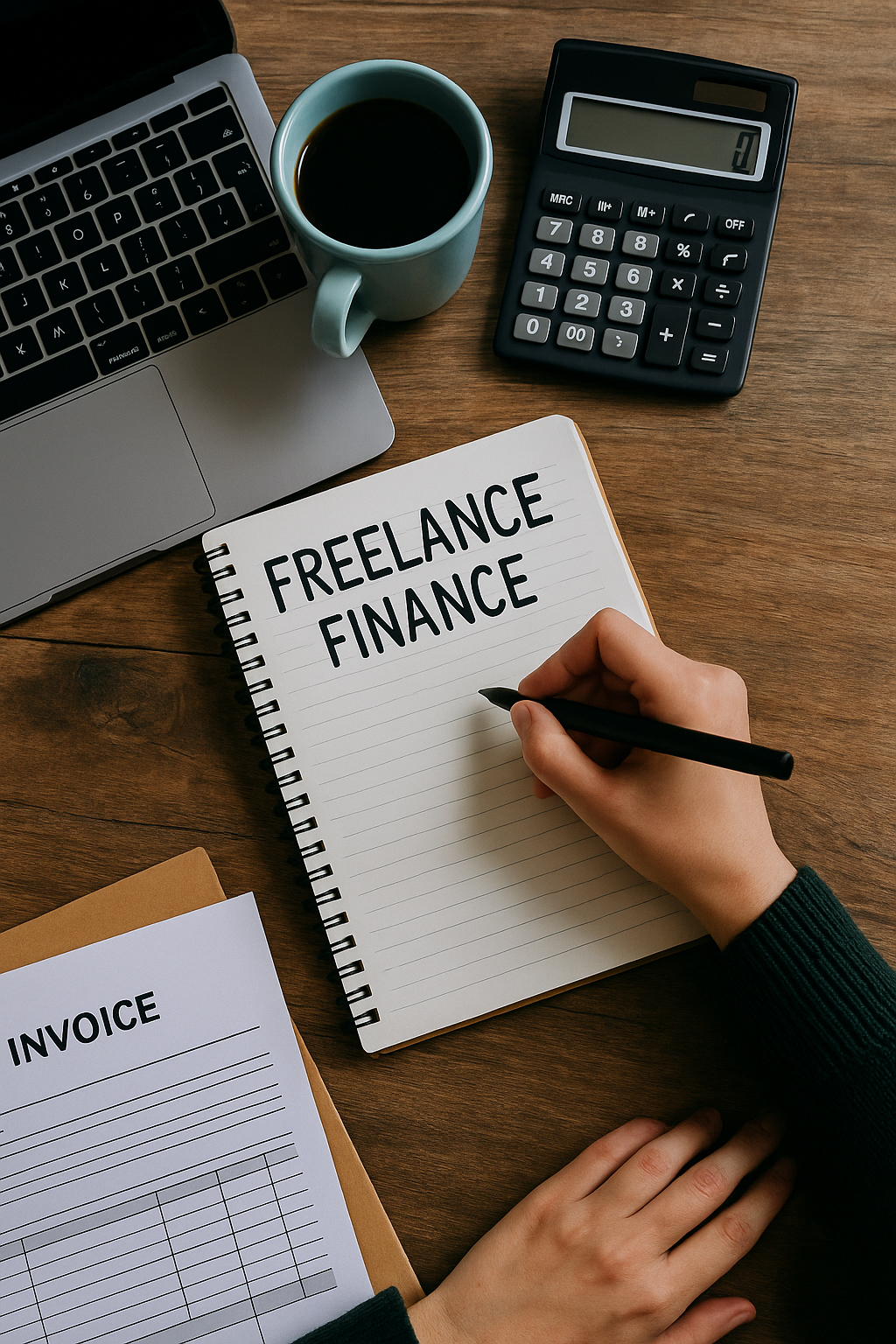Freelancing gives you freedom — but it also brings financial chaos if you’re not prepared.
Unlike traditional jobs, freelancers don’t get regular paychecks, automatic tax withholding, or built-in retirement plans. You’re your own boss, but also your own bookkeeper, payroll processor, and tax planner.
The good news? You can take control of your money without becoming a financial expert. This guide will show you how to build structure, stability, and long-term success in your freelance finances.
1. Start by Separating Your Money
One of the biggest mistakes freelancers make is mixing business and personal money. When everything runs through the same account, it’s almost impossible to know how much you’re actually earning — or spending.
Create a separate bank account just for freelance income. Ideally, add one for expenses and another for savings. This setup makes it easier to budget, track your earnings, and prepare for tax time. It also helps you treat your work like a business instead of a side hustle.
2. Pay Yourself Like You’re on Payroll
Freelance income isn’t consistent. Some months are great; others are quiet. That’s why it helps to give yourself a regular “paycheck.”
Decide how much you need to live on each month and transfer that amount to your personal account consistently. When you get paid from clients, don’t spend it all — deposit it into your business account, then pay yourself from there. This smooths out your income and keeps your lifestyle stable, even when projects fluctuate.
3. Set Aside Money for Taxes Every Time You Get Paid
One of the biggest shocks for new freelancers is realizing that no one’s withholding taxes for you. That means you need to plan ahead — not just once a year, but every month.
A good rule of thumb is to save 25% to 30% of each payment you receive. Move it immediately into a separate savings account so it’s not accidentally spent. That way, when tax season comes, you’re ready. You can also use apps like Keeper, QuickBooks Self-Employed, or Bonsai Tax to make tracking easier.
4. Track Your Expenses, But Don’t Let It Take Over Your Life
Freelancers are often eligible for more tax deductions than they realize. Software, hardware, a portion of your rent or internet, business travel, client gifts — they can all reduce your taxable income.
However, don’t obsess over every receipt. Instead, choose one expense tracker and stick with it. Apps like FreshBooks, Wave, or Expensify can automate most of the work. Set a reminder once a week to review everything, and let the tools handle the rest.
5. Build a Safety Net for Slow Months
Every freelancer knows the dry spells. A client pauses. A contract ends. An invoice gets delayed.
That’s why having a cash buffer is essential. It’s not a luxury — it’s your survival plan. Try to build an emergency fund with three to six months of essential expenses. Keep it separate from your tax and operating accounts so you’re not tempted to dip into it. This fund gives you breathing room when things slow down and protects you from making desperate decisions.
6. Yes, You Can (and Should) Save for Retirement
Just because you don’t have an employer doesn’t mean you should skip retirement planning. In fact, freelancers often have even more flexibility.
Start small if needed — even $50 a month into a Roth IRA is better than nothing. As you grow, look into a SEP IRA or Solo 401(k), both of which let you contribute far more than traditional plans. Use platforms like Vanguard, Fidelity, or Betterment to keep things simple and low-cost.
The earlier you begin, the more freedom you’ll give your future self.
7. Think Like a Business — Because You Are One
Freelance finance isn’t just about survival. It’s about building something sustainable. Even if you’re a one-person team, treat your work like a real business.
That means setting financial goals, reviewing your income monthly, and thinking ahead. Reinvest in your tools, your skills, and your brand. Know your numbers. And if you’re not sure how to plan ahead, take time each quarter to reflect and adjust.
Final Thoughts: Freelance Finance Can Be Simple
You don’t need to love spreadsheets or study accounting to master freelance finance. You just need a system.
Start by separating your money. Save for taxes consistently. Pay yourself like an employee. Track expenses without going overboard. Build a safety net. And don’t forget about your future.
With just a few habits, you can turn financial stress into confidence — and grow your freelance career with clarity, not chaos.
